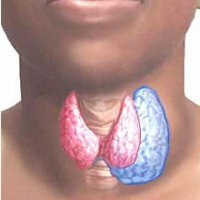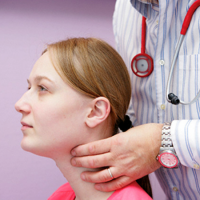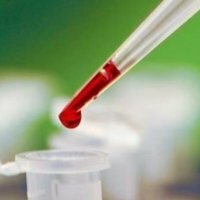Hypothyroidism: symptoms, diagnosis, treatment and prevention
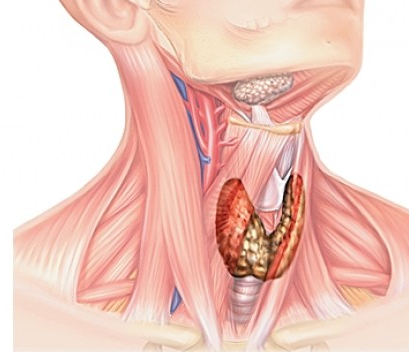 Hypothyroidism is a pathology( group of syndromes), which is caused by a sharp lack or complete absence of thyroid hormones.As a rule, it develops against the background of complete dysfunction of this endocrine organ. Important: on medical statistics, hypothyroidism has become almost the most common pathology among all endocrine diseases.It affects most women who have reached the age of 65, as well as individuals living far from the sea( i.e., in areas where the air is less iodized).
Hypothyroidism is a pathology( group of syndromes), which is caused by a sharp lack or complete absence of thyroid hormones.As a rule, it develops against the background of complete dysfunction of this endocrine organ. Important: on medical statistics, hypothyroidism has become almost the most common pathology among all endocrine diseases.It affects most women who have reached the age of 65, as well as individuals living far from the sea( i.e., in areas where the air is less iodized).
Classification
The thyroid gland is responsible for the production of T3( triiodothyronine), T4( thyroxine) and promotes the growth of the pituitary hormone( TSH).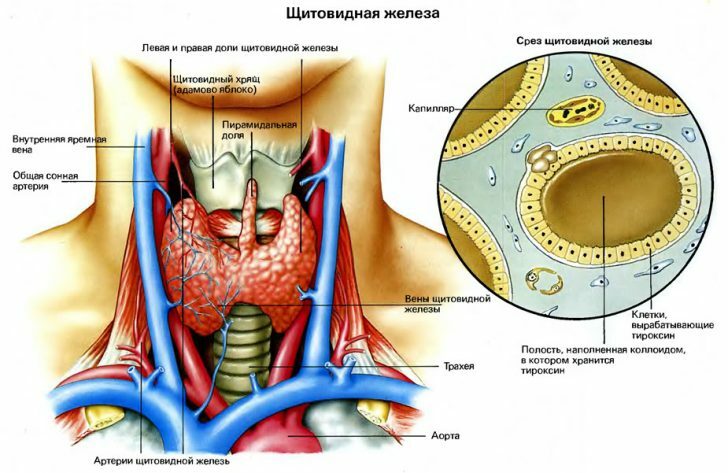 These biologically active compounds regulate all kinds of metabolism, control the activity of most organs and systems, are responsible for the growth and development of the body as a whole, strengthen immunity and exert antistress effect.Note:
These biologically active compounds regulate all kinds of metabolism, control the activity of most organs and systems, are responsible for the growth and development of the body as a whole, strengthen immunity and exert antistress effect.Note:
- Primary;
- secondary;
- central.
Primary form is caused by disruption of the endocrine gland itself and, as a consequence, by a decrease in the secretion of its hormones.The secondary form is determined by malfunctions in the functioning of the pituitary or hypothalamus - these regions of the brain are responsible for the regulation of the production of TSH.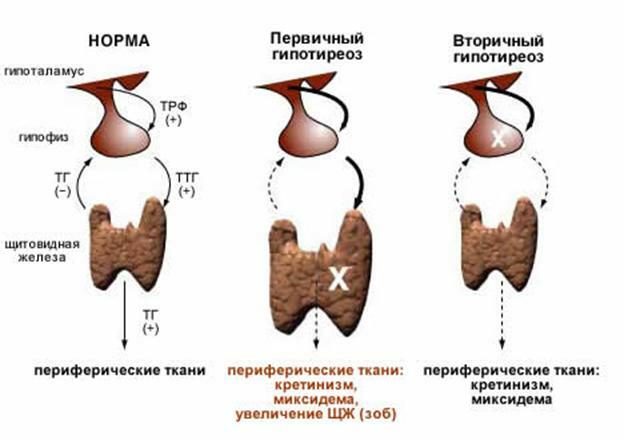 There are also hypothyroidism of the central genesis( tertiary).It is due to the toxic effects of hormonal drugs, as well as a decrease in the number of cells producing thyroid hormone compounds.In the latter case, a possible cause may be tumors and viral infections.The central form of hypothyroidism accounts for up to 5% of clinical cases.
There are also hypothyroidism of the central genesis( tertiary).It is due to the toxic effects of hormonal drugs, as well as a decrease in the number of cells producing thyroid hormone compounds.In the latter case, a possible cause may be tumors and viral infections.The central form of hypothyroidism accounts for up to 5% of clinical cases.
Reasons for hypothyroidism
Recommended to read:As a rule, the cause of hypothyroidism is chronic thyroiditis of autoimmune genesis - an inflammatory pathology in the synthesis of antibodies due to immune dysfunction. Other etiological factors include:
- Genetically determined defects in the formation of specific hormones;
- underdevelopment( hypoplasia) of the gland from birth;
- surgical interventions on the gland in the anamnesis;
- conducted therapy for toxic goiter through irradiation and radioactive isotopes of iodine;
- small alimentary intake of iodine;
- drug therapy by some means;
- organ tumors;
- chronic infectious diseases of the endocrine gland( fungal, tuberculous lesions, etc.).
A secondary pathological process develops when:
- eliminates the pituitary gland;
- traumatic damage to the pituitary or hypothalamus;
- inflammation of the endocrine organ;
- thyroid necrosis;
- is a tumor of the gland.
What changes are possible?
With a drop in the volume of incoming thyroid hormones, the general metabolism changes, the functional activity of the cardiovascular system and the digestive tract deteriorates, changes in the psyche are recorded, and the libido decreases.
Clinical signs of hypothyroidism
We recommend to read: 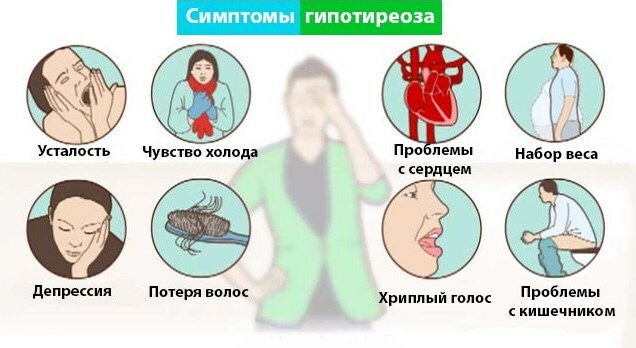 The clinic of this pathology is growing very slowly, in connection with which, patients come to a specialist already in the presence of significant changes in the body. The characteristic symptoms of hypothyroidism are:
The clinic of this pathology is growing very slowly, in connection with which, patients come to a specialist already in the presence of significant changes in the body. The characteristic symptoms of hypothyroidism are:
- general lethargy and weakness;
- feeling drowsy;
- reduced memory capacity:
- worsening attention;
- decrease in cognitive abilities;
- poor tolerance of temperature irritants( cold and heat);
- dry skin and dandruff;
- alopecia( both in men and in women);
- appearance of edema( mainly - face and limbs);
- constipation;
- increased body weight;
- menstrual cycle disorders in women;
- decreased libido and erectile dysfunction in men:
- reduction in heart rate;
- sweating;
- appetite impairment;
- flatulence;
- arrhythmia;
- anemia.
Important: , in the absence of adequate timely therapy( especially in elderly patients), a life threatening condition can develop-a hypothyroid coma.This condition is characterized by loss of consciousness and suppression of the basic functions of the body.Those who provoke depression may be hypothermia, acute diseases( including infectious genesis), myocardial infarction, etc.
Diagnosis
We recommend reading:The diagnosis of hypothyroidism is made exclusively by an endocrinologist. The basis for the diagnosis are:
-
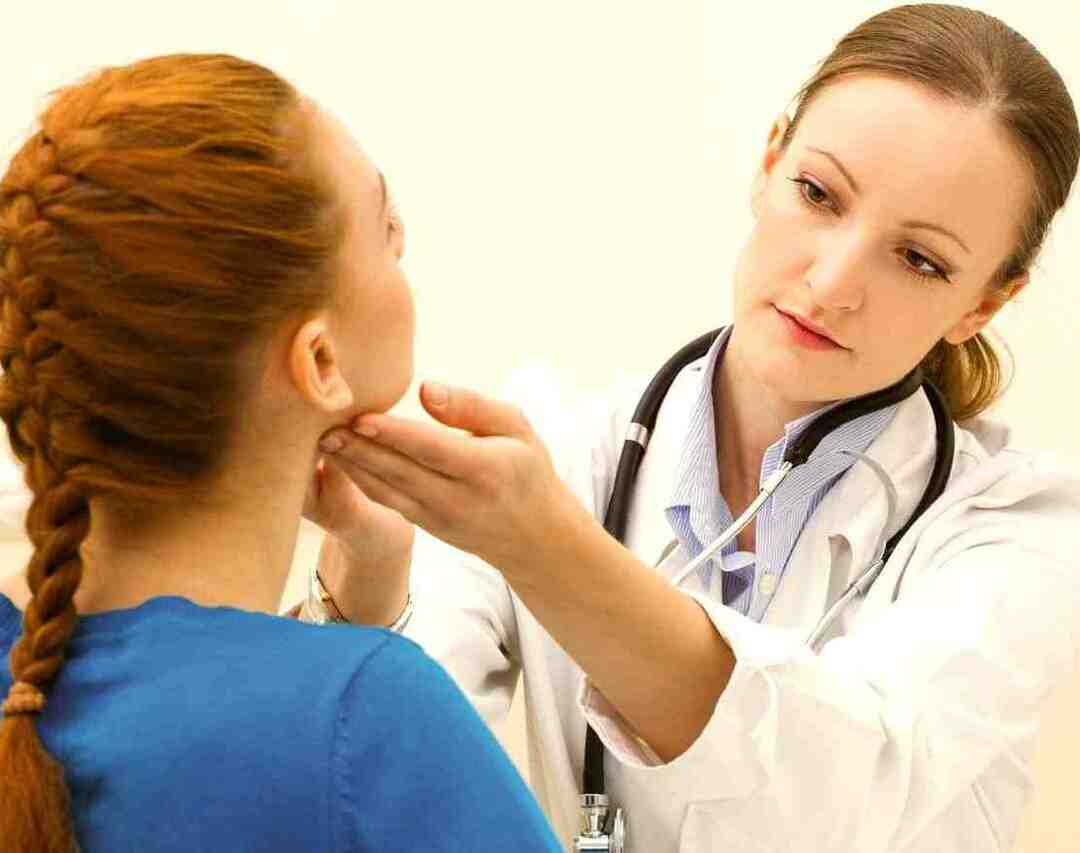 complaints of the patient;
complaints of the patient; - objective examination( clinical picture);
- blood test for "biochemistry"( cholesterol has the property of rising);
- blood test for the level of TTG, T4 and T3;
- revealing the level of thyroid-stimulating hormone( the indicator can be increased and lowered).
In case of primary hypothyroidism, if the cause of the disease lies in the violation of the thyroid gland, the analysis data for the thyroid hormones will be as follows:
- T3, T4 - reduced level( sometimes the level may be normal);
- TTG - increased;
- AT-TG, AT to TPO - normal.
In secondary hypothyroidism, if the cause of the disease lies in disorders from the brain, the following results are possible:
- T3, T4, TTG - reduced;
- AT-TG, AT to TPO - normal.
Important: from the instrumental techniques of the patient examination often shows an ultrasound examination of the organ, as well as scintigraphy and a biopsy of the thyroid. 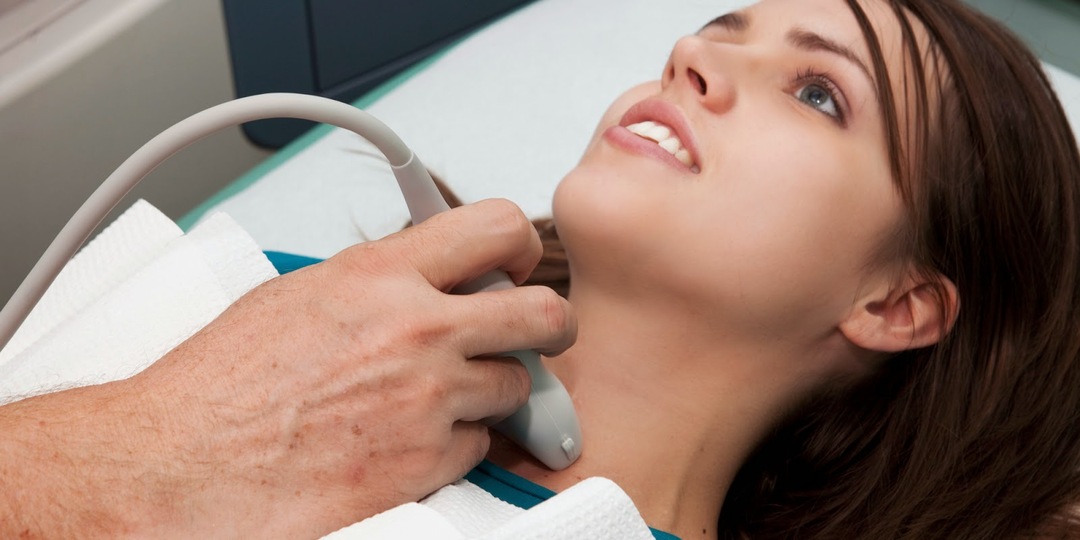
Treatment of hypothyroidism
The basis of modern therapy for hypothyroidism is a "substitution" form of treatment, during which the patient receives hormones that are not adequately produced by the thyroid gland.The dosage of medicines is selected by the treating endocrinologist, taking into account the severity of the pathology, the age of the patient, and the presence( or absence) of certain other common somatic diseases.Modern drugs are well tolerated by most patients with hypothyroidism.Most drugs need to be consumed only once a day.The main part of patients with hypothyroidism requires lifelong maintenance treatment;For regular monitoring of the level of TSH and thyroid hormones, patients need to undergo annual check-ups( examination by an endocrinologist).One of the important etiological causes of hypothyroidism is the inadequate reception of iodine by alimentary route( with food).In this case, patients are recommended to consume iodized salt( instead of the usual cookery) and eat as many seafood as possible( of course, if there is no allergy to them).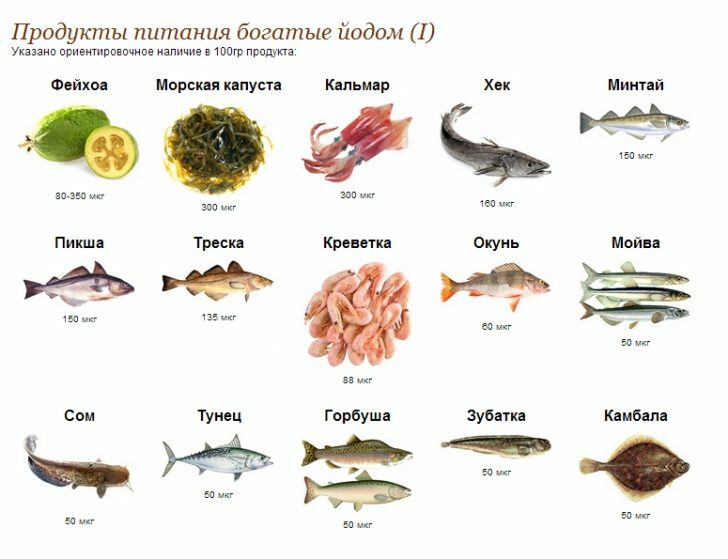 Compliance with the recommendations of the doctor and the appropriate use of appropriate medicines can completely get rid of the negative manifestations of the disease.
Compliance with the recommendations of the doctor and the appropriate use of appropriate medicines can completely get rid of the negative manifestations of the disease.
Possible consequences
Untreated hypothyroidism leads to a rapid and steady deterioration in the general condition of the patient and the appearance of menacing complications.In elderly and elderly people, the hypothyroid coma can cause death.In children, this pathology leads to an irreversible delay in physical growth and mental development.One of the possible consequences may be a serious violation - cretinism.About the symptoms, the causes of development, methods of diagnosis and treatment of hypothyroidism in this video review tells the endocrinologist:
Konev Alexander, the therapist

